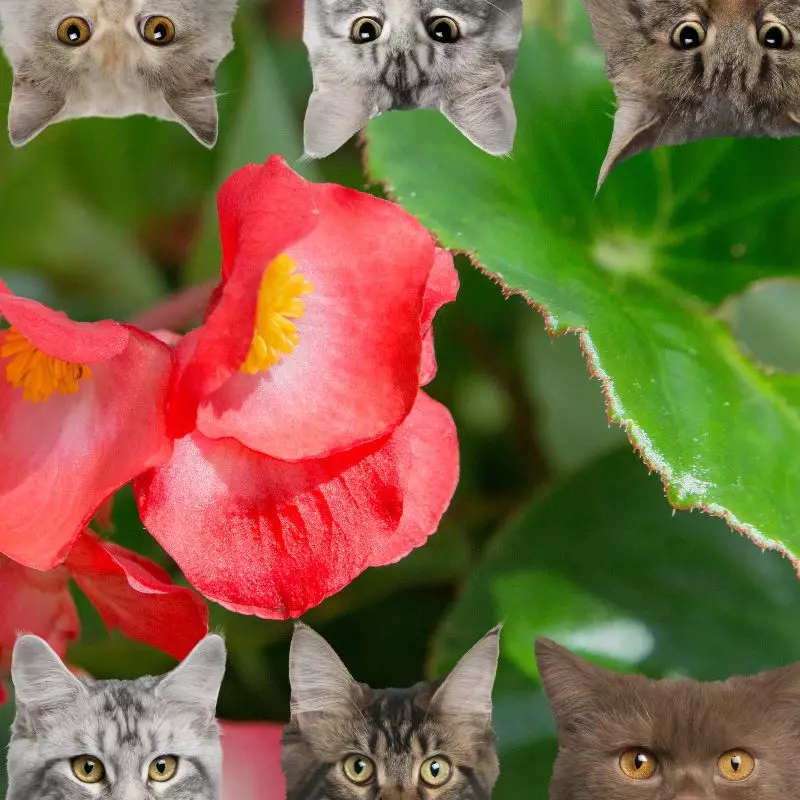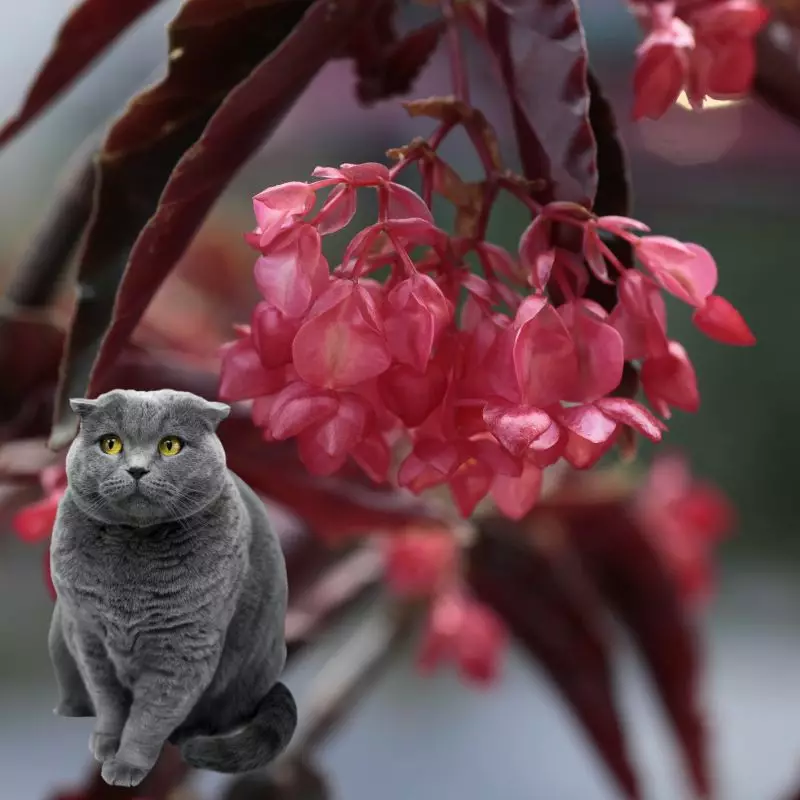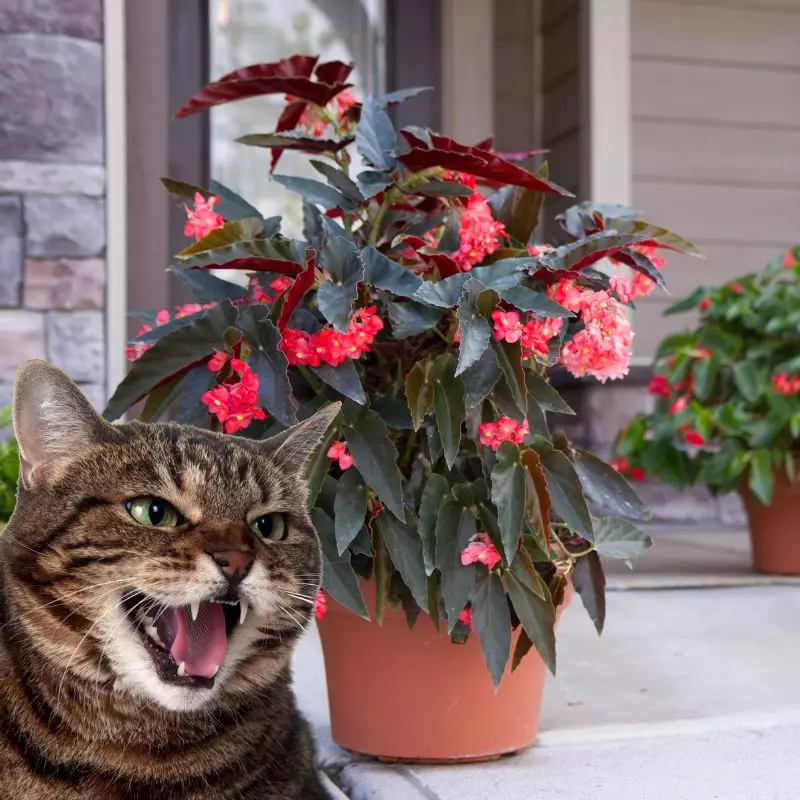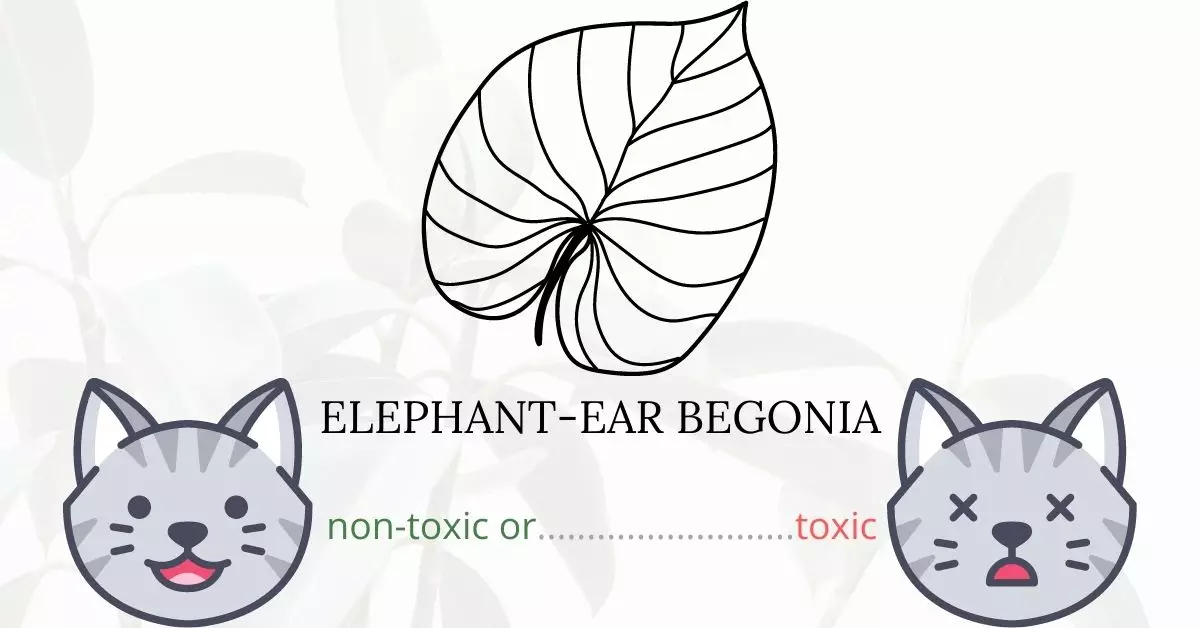Yes, Elephant-Ear Begonia, also known as Angel Wing Begonia, is toxic to cats. The plant contains calcium oxalates, which, when ingested, can cause significant discomfort and health risks for felines. Specifically, the oxalate crystals can lodge in various tissues, leading to irritation. These crystals can also break down into oxalic acid, a potent irritant. As a response, cats might exhibit symptoms like vomiting as they try to alleviate the irritation and prevent further damage to their digestive system. If not addressed, the toxin can progress to the liver, posing risks of severe disease or even death due to liver failure.
This article was written in collaboration with a team of experienced DVMs (doctors of veterinary medicine). Their invaluable insights ensure the accuracy and relevancy of our information concerning the potential risks associated with Elephant-Ear Begonia and its effects on cats. Additionally, our research draws from high-authority sources such as the ASPCA and PetMD, further cementing the reliability of the presented data.
Clinical Signs of Elephant-Ear Begonia or Angel Wing Begonia Poisoning in Cats

When cats come into contact with or consume Elephant-Ear Begonia, a series of clinical symptoms can manifest. Each symptom is a direct response to the plant’s toxic components and the body’s attempts to cope with the irritants:
- Excessive salivation: This is an immediate response to the irritants present in the plant. Saliva helps in diluting and clearing out the harmful substances, acting as a protective measure.
- Oral sores: Due to the presence of calcium oxalate crystals, which can embed in the soft tissues, sores may develop in the cat’s mouth. This results from the mechanical injury of the crystals and the irritation they cause.
- Swelling of the mouth and tongue: The embedded oxalate crystals can cause inflammatory reactions, leading to swelling in the affected areas.
- Vomiting: As the body’s natural defense mechanism, vomiting attempts to rid the stomach of any ingested toxins, including parts of the Elephant-Ear Begonia.
- Dehydration: Frequent vomiting and excessive salivation can lead to dehydration as the body loses fluids at an accelerated rate.
- Inability to swallow: The swelling, oral sores, and the general irritation caused by the plant can make swallowing painful or difficult for the cat.
- Loss of appetite: Due to the discomfort and pain in the oral cavity and the potential upset stomach, cats may be discouraged from eating.
It’s crucial to observe your cat closely if you suspect they’ve been in contact with the Elephant-Ear Begonia plant, and seek veterinary care immediately if any of these symptoms are present.
First Aid and Treatment of Elephant-Ear Begonia or Angel Wing Begonia Poisoning in Cats

Most cases of angel wing begonia poisoning in cats are mild, and the symptoms go away on their own in about 48 hours. A prescription diet, on the other hand, might be recommended by the veterinarian since it is easier on the stomach and helps remove any oxalate crystals that are still retained in the cat’s digestive tract. To minimize throat swelling and maintain a clean airway, anti-inflammatory drugs may be prescribed to your cat. Additional medications may also be administered by the vet depending on your cat’s condition. Fluid therapy may be required if your cat is suffering from dehydration.
Recovery from Elephant-Ear Begonia or Angel Wing Begonia Poisoning in Cats

A severe case of begonia poisoning normally has a quick recovery time, with most cases being resolved in two weeks or less and no need for follow-up sessions. The explanation for this is that oxalate crystals lose their effectiveness fast, meaning that if your cat has stopped ingesting more, his or her body’s oxalic acid levels will swiftly drop.
Prevention of Elephant-Ear Begonia or Angel Wing Begonia Poisoning in Cats
Elephant-ear begonias are not recommended to be planted or brought in a household with cats. The best prevention aside from removing elephant-ear begonias from your home is to restrict your cat from going out of your house. Utilizing cat cages and installing fences and safety nets around your house may help minimize the risk of your cat wandering away.
If you love plants but have cats at home, check out these lists:





